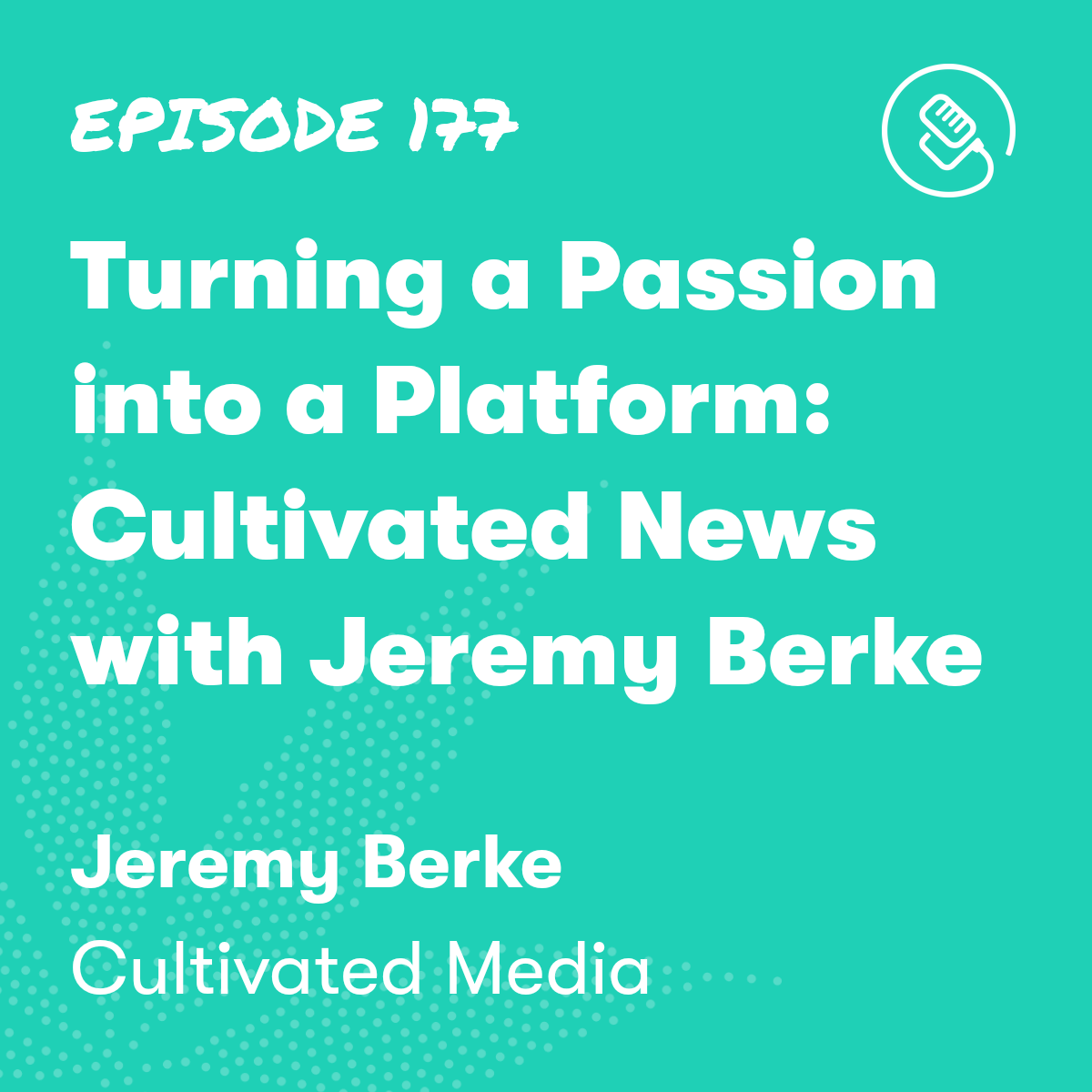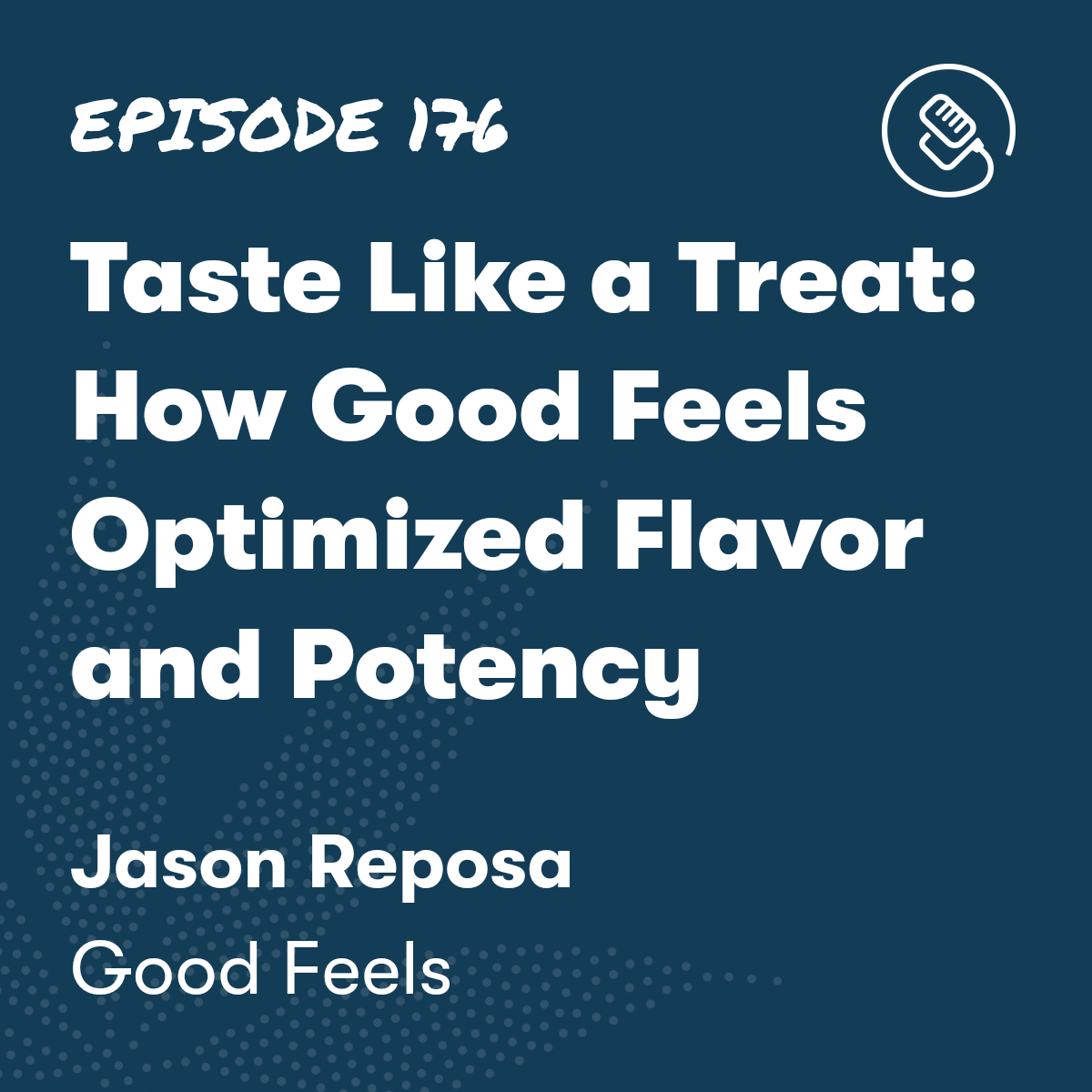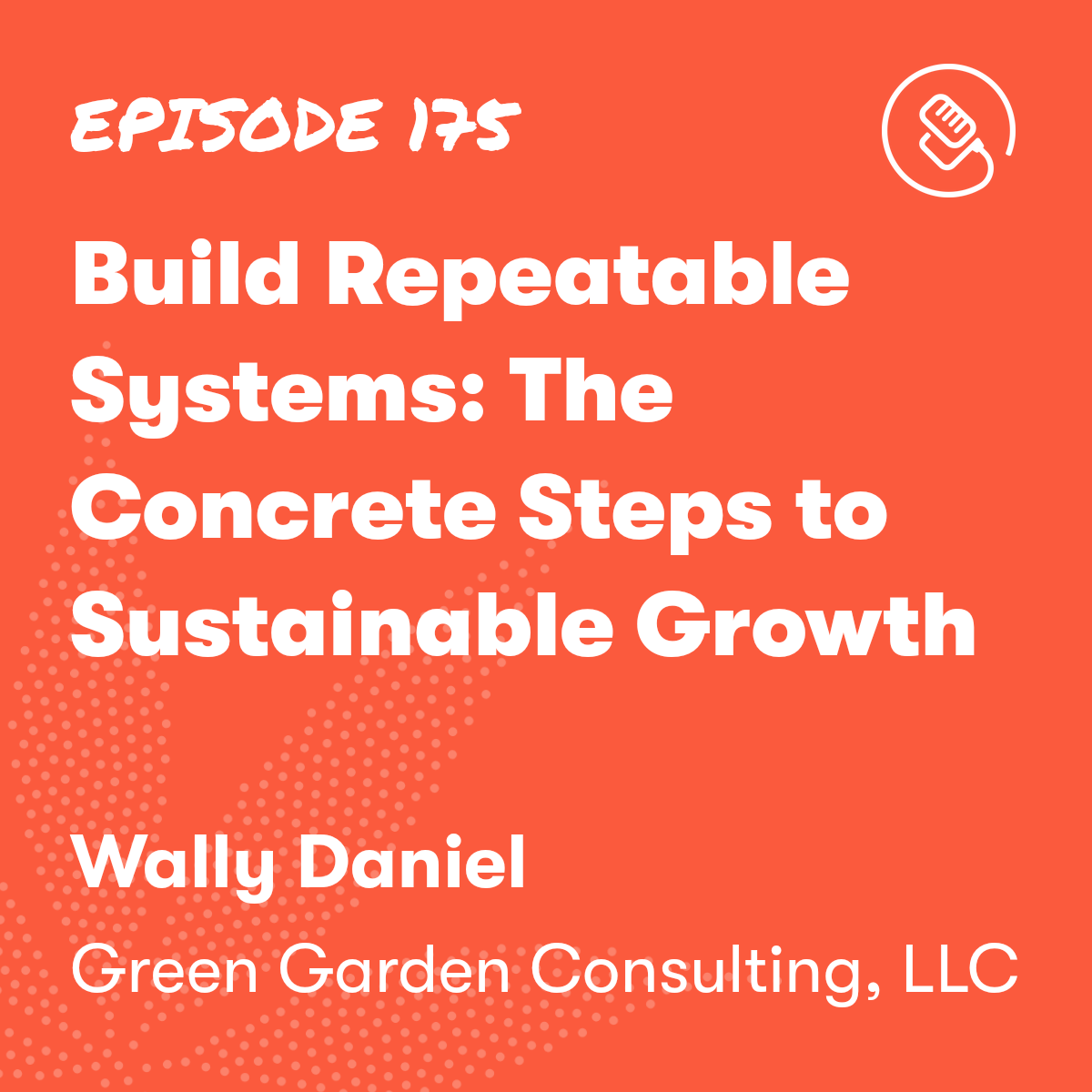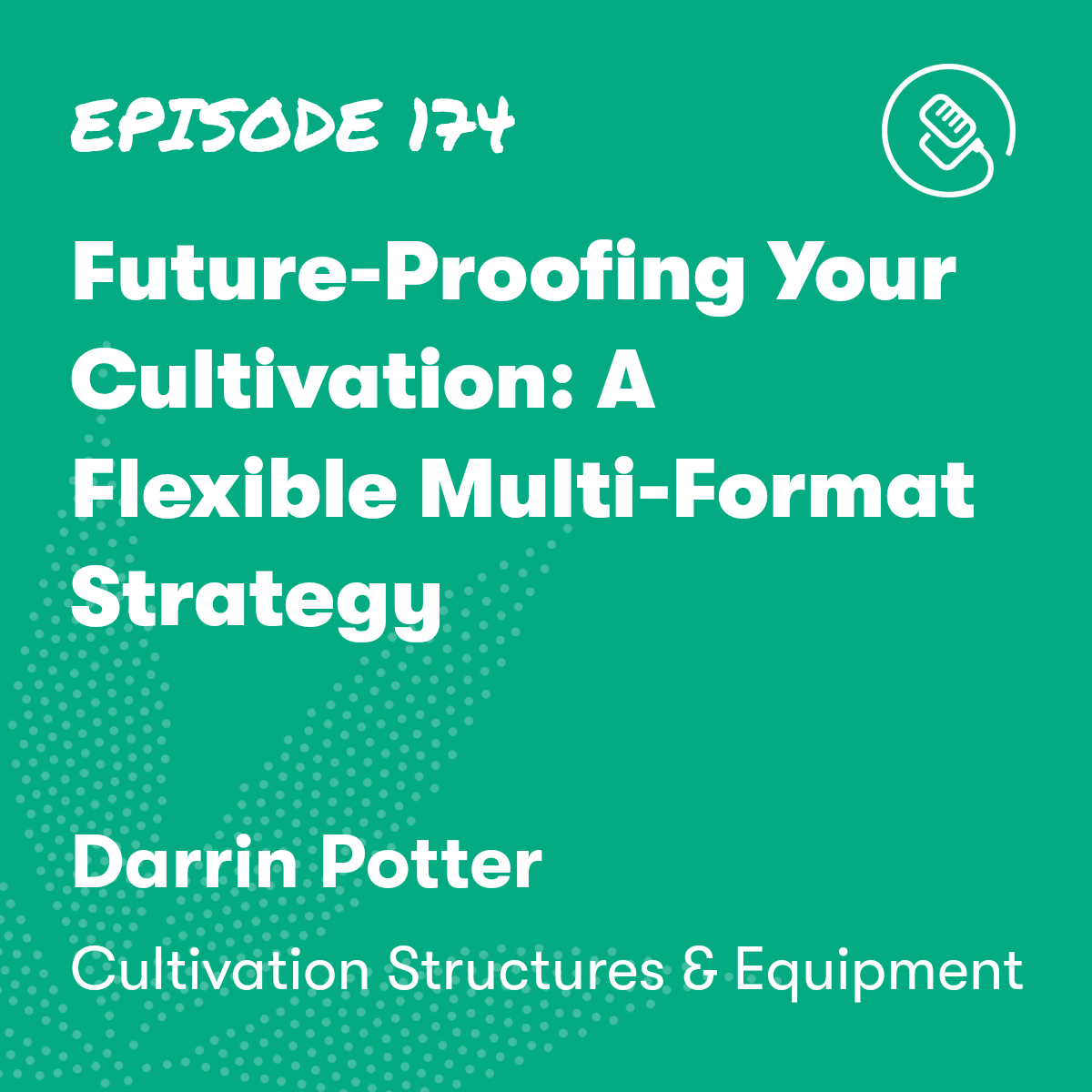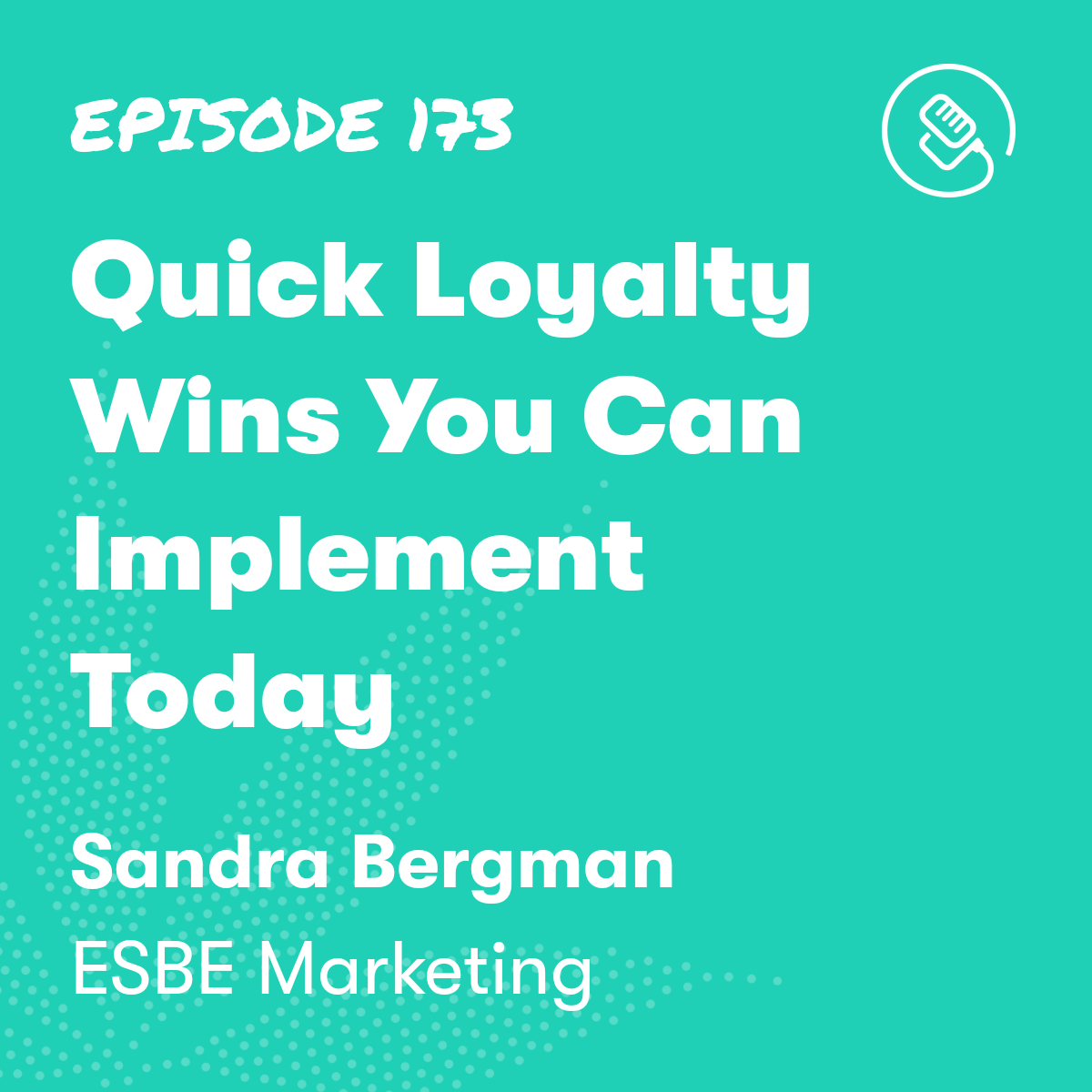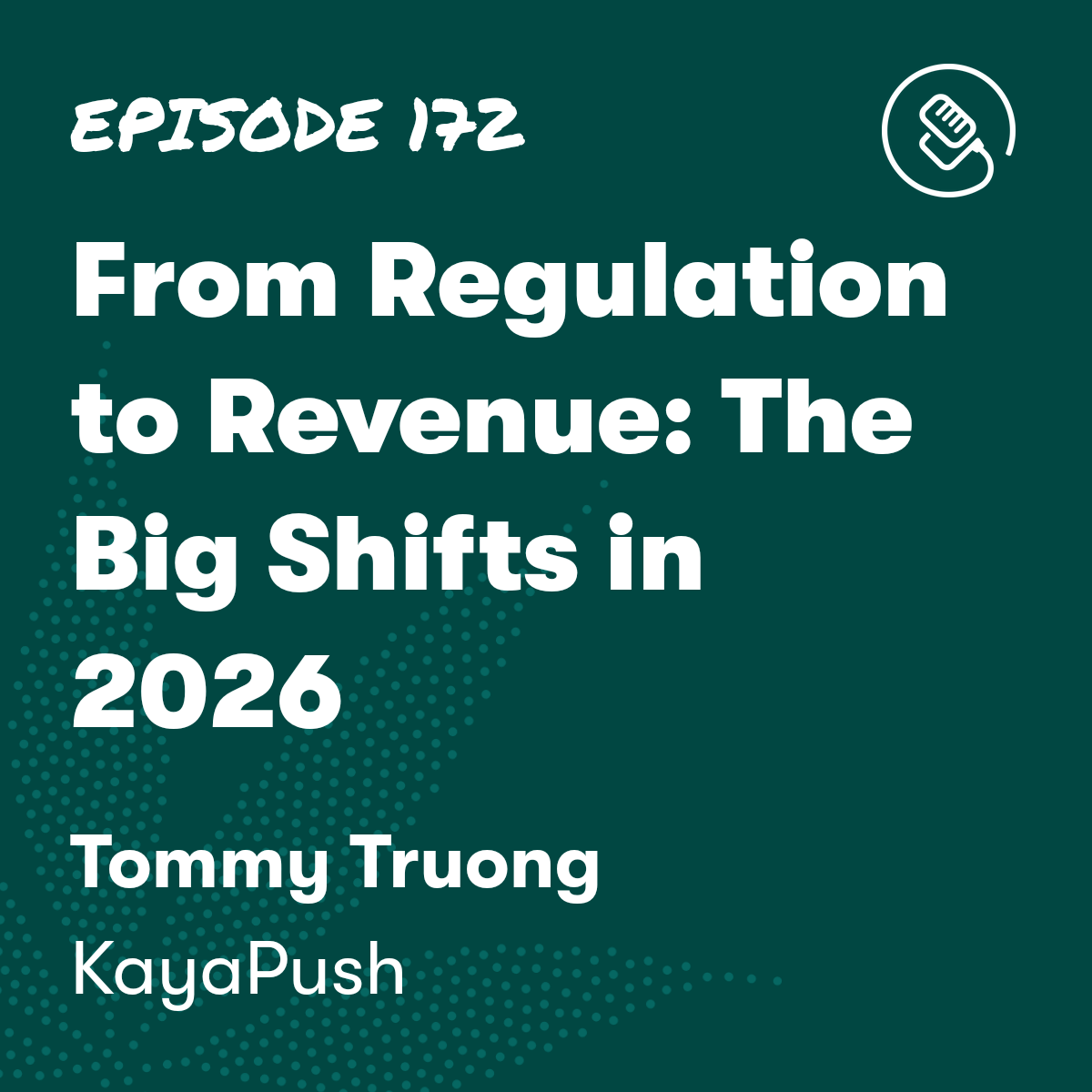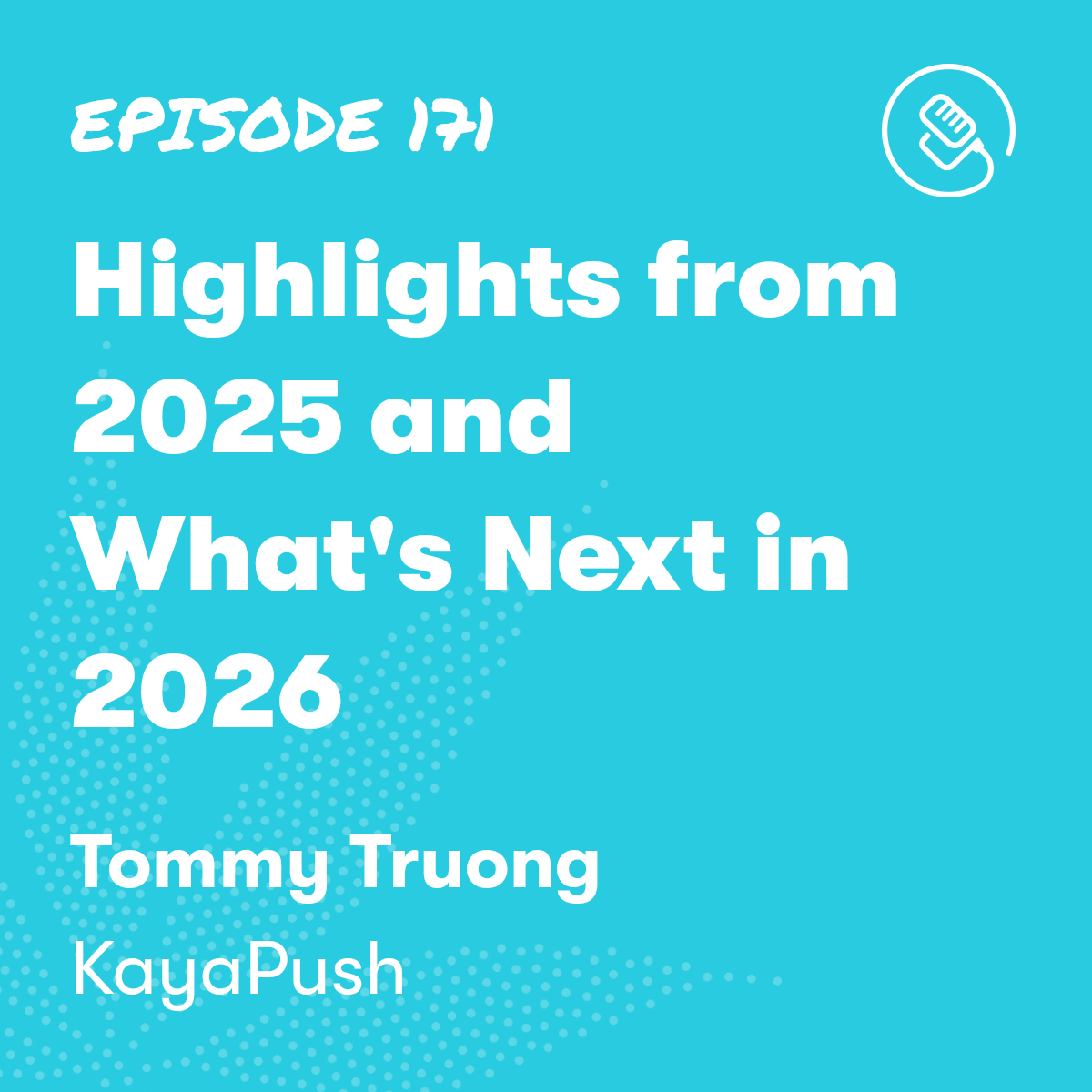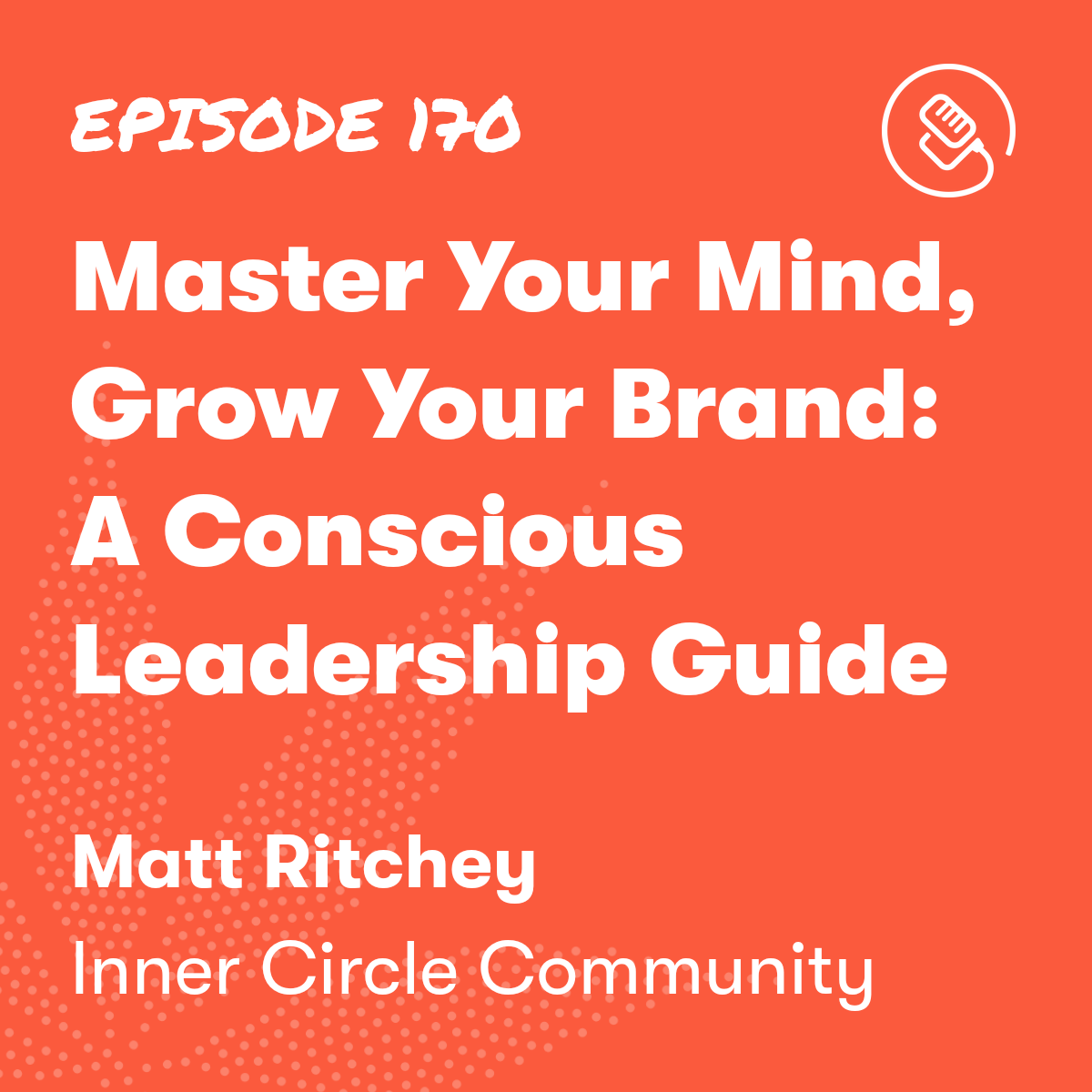
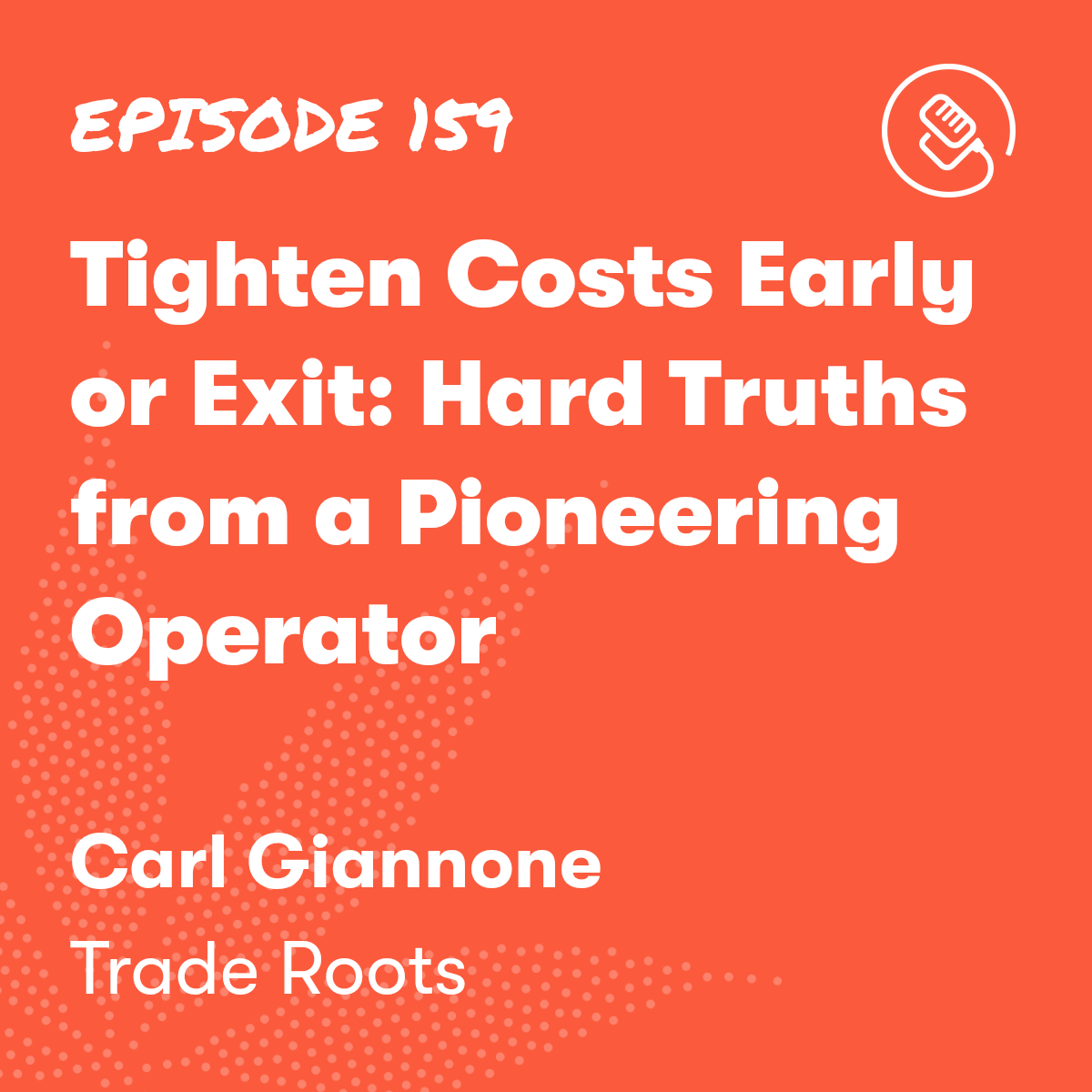
Tighten Costs Early or Exit: Hard Truths from a Pioneering Operator
Episode Description

Episode Transcript
Intro: [00:00:00] Welcome to Kaya Cast the podcast for cannabis businesses looking to launch, grow, and scale their operations.
Tommy Truong: Thank you so much for joining me today.
Carl Giannone: Thank you for having me, Tommy.
Tommy Truong: So, started your career as a trader, and then just so happens you land on running a vertically integrated can cannabis business. How?
Carl Giannone: Life's funny. Um, yeah, so I, I, and I've, I've said this before, um, and I'd be the first to admit now I, in undergrad, um, I did write a, a paper on the legalization of cannabis and it was published in an academic journal. And, uh, then I graduated and, you know, spent almost 20 years on Wall Street and doing, you know, serious grownup business stuff.
Um, and then in 2016, a gentleman who I used to, I traded with back in the early aughts, um, sent me a [00:01:00] deck, it was on a Thursday, and sent me a deck, said cannabis grow up or email cannabis grow opportunity. And so this gentleman had helped. A friend of mine did some, some, some nice stuff. And so I had to give it a look.
And so I sent it off to a couple of guys that I knew that did diligence for like, uh, VC and PE. And so I sent it off to Chris and, and Chris responded back that Friday, it may be three 30. So market closes at four heading into my weekend, and he responds back with what's the minimum investment, to which I responded, well, there goes my weekend.
Uh, I have, I have some homework to do. And, you know, and up until that point, I really thought the cannabis industry was a business for, for criminals and children. And, and so we started the, the first vertically integrated social equity, uh, cannabis company in Massachusetts that makes my partner the criminal, which makes me.
The, the child. Um, but so sent off the deck, Chris responds, you know, uh, what's the minimum investment? And so put together an investor group and, uh, we went out to the farm that [00:02:00] following summer. Um, at, at that point I had, uh, met my, my business partner, Jesse, um, who had, and we brought him out there along with another friend Sebastian, from who I actually knew from high school, um, who he and Jesse were traditional market, black market business partners.
Um, and so we brought them out to, to Oregon, to, uh, we were gonna open a lab and we got out there. Business was not being run the way one would want a business run. Uh, and so instead of getting bigger, got smaller. But I wake up as we were just talking about, uh, before the podcast. I wake up crazy early in the morning, still from my trading days, just.
Old habits. And Jesse, his day job is construction, so he'd wake up early too. And so we're on this gorgeous 56 acre farm. Um, and I was like, the, if a puppy could ask questions, I was probably that annoying just following him around asking, you know, what about this, what about this, what about [00:03:00] this? And at the end he's like, you know, uh, he's like, you know, Carl, he's like, uh, why don't we bring this mountain?
You know, Massachusetts just went legal. Why don't we bring this mountain to Wareham? And I looked at him and said, what the, is a Wareham? Uh, you know, Jesse, I, I live in Manhattan. I have offices in New York and Miami. Like I, this is my week off. But, um, and so, uh, I was originally asked to raise about 2.2 million.
I'd get the percentage of the company, then I'd go back to my life. Um, we originally had five partners that shrunk down to two. My responsibilities grew and. I learned, uh, where, where the heck aware him is as I'm living here now.
Tommy Truong: What were, you know, I, and we spoke about this earlier, it's, it's only in the cannabis industry that you have to start four or five different businesses all in one. You know, you, well, when you go to the grocery store and you buy milk, it's not, you know, the [00:04:00] supermarket didn't own the farm. They didn't package it.
They're just distributing milk.
Carl Giannone: Yep.
Tommy Truong: Where did you start? Like you're not you, you don't have any background in the cannabis industry.
Carl Giannone: Um, I remember it was actually I, um, was out of Benzinga and Patrick Raya from, uh, Poseidon. Invited me to, to one of his things and, and I was, was so, so ha It was so cool because he had the, that podcast, uh, what's it called? Canopy, Boulder Canopy Office Hours. I mean, not only did I not know weed, the last time I poured over financial statements, I was in college like I was a trader.
Physics not finance, so mess, you know, sort of insanity of crowds. Not, you know, I, I didn't care why you did what you did, but if you had money enough to move markets, I wanted to see that you were doing it so I could get in with you quicker and all of that, right? So, [00:05:00] um, so I remember being, and, and part of the cannabis, like cannabis origin story, get back from Oregon.
We thought my mother had a little tear in her shoulder, turned out to be a, a seven centimeter primary mass and metastasized everywhere. Um, and so, you know, I really thought that medical cannabis was. You know, if I'm sick, I'd rather be high and sick. And if I was really sick, I'd probably want to be really high.
And there's enough, you know, principal libertarian, I don't believe in committing a crime against yourself. Like, so, like all of that made sense. But as far as like an actual medical use, I didn't, didn't quite, didn't quite get it. Um, and so, I mean, I had to learn all of this. And I remember listening to, to Patrick's podcast, um, like truly crying on the floor of my mother's kitchen, being like, how the heck am I gonna learn any of this?
Um, and originally to answer your question, I'll give my my business partner, Jesse, full credit for [00:06:00] this. Um. You know, he had, he was a wholesaler, um, you know, talks about things like when nine 11 happened and the border shut down, how that affected his business from bringing the boosters in from BC to now.
The Cali connection was, you know, his customer was now his plug and, and all of that. Um, you know, and, but he had started growing as an experiment under the caregiver program in Massachusetts and he grew some really good weed. And so, you know, my whole push was, I'm like, well, if this is what, you know, neither of us know anything about retail.
Certainly the lab, maybe there's, there's something there. He'd taken some courses and all of that and we saw sort of the future there. Um. Yeah, but you know, why be, why go vertical? And you know, Jesse's like, we have to, otherwise, you know, the, the retailers are gonna hold us over a barrel. This. And then I'm like, yo, Jesse, take a look at the fortunes, you know, back in 2018.
Right. Take a look at the Fortune 500. You know, take a look at the, you know, the [00:07:00] biggest companies, you know, you have Apple and Google and Me or Facebook at the time, and oh shit, they're all vertically integrated wall walled gardens. Okay, maybe there's something there. Now, in hindsight, and we talked about this a little bit offline, do I think that the vertical, the vertical, the, the model of vertical integration being necessary in cannabis, are we gonna see that in 20 years?
Probably not. You know, the, the idea that, you know, you're as, as you said, you know, going to the, the, the, the Golden Graham's supermarket to buy the Golden, your Golden Graham cereal that was produced and also, uh, they post owns the farms and all like that. That's not a. That's not a thing in, in, in other industries.
And so I do see that changing. Um, certainly when we started it was, uh, it was a bit daunting. I mean, I, you know, had my notebooks and anytime, you know, the, the grownups would say something I didn't understand. I'd, you know, it started with when we were going into construction change orders. I had never been involved in a construction project.
I had no idea what it was, but one of the [00:08:00] builders said something about change orders. And, and Jesse also, like, everybody sort of laughed and it was like, okay, I need to figure out what this is. And to the tune of, uh, three quarters of a million dollars, I learned, uh, what a, a change order was in construction.
Tommy Truong: When you started, uh, construction and, and, and I'm guessing that you have to do, did you start cultivation and then retail and then add on extraction and manufacturing? Was the, what were the steps that you, that you did to get a minimum viable product? Have revenue come in while, you know you've expanded across the business.
Carl Giannone: So if we're starting with the things I would do differently, knowing what I know now, um, we, we opened up cultivation and manufacturing at the same time. That was spring of 2022. And then we opened up retail spring of 2023 or winter, uh, February of [00:09:00] 2023. So,
Tommy Truong: So you got the
Carl Giannone: oh, no, I'm sorry. I'm sorry. 21 and 22. Sorry, 21 and 22.
Um, and so we opened up, yeah, we wanted to have our own product on the shelves for when we opened up retail. In hindsight, I would've done that differently, would've just gotten product on the shelf, get some cash flowing, and then,
um, integrated our products. But interestingly enough, our, actually our biggest revenue line was our manufacturing services.
Tommy Truong: Wow.
Carl Giannone: So doing extraction, which the funny part was we didn't put in our proforma to our investors. So we knew, we knew we screwed up in our proforma. Didn't know how, but I mean, they're all screwed up. Right?
Um, we were told by investors, a, a number of them. The reason they invested in us is because ours was the most conservative out of any of the one.
And you know, Flo was trading, I think around $4,000 a pound. We were predicting $2,000 a pound within a couple year. Like the [00:10:00] whole, the whole thing, right? Uh, but we figured we mis modeled something. We also knew that the lab would be. Would be a money maker. And so the idea was let's model in using the lab to extract trade routes, trim some stuff for live resin to, to, to fill our menus and, and have a wholesale presence, but certainly not third party manufacturing, you know, doing toll splits and all of that.
And that actually wound up being, being our biggest money maker. So, whereas retail did not turn out, uh, the way we had, uh, we had hoped.
Tommy Truong: They're, they're completely different businesses. Right? Completely different. That's what I always think about with a vertically integrated business. I always think about, okay, well one is B2B and the other one's B2C and they're, that's two completely different business. So when we started, before we started our, our company, we started a few B2C software [00:11:00] companies.
Carl Giannone: Okay.
Tommy Truong: And me and my business partners quickly realized that, oh my God, this is gonna cost a lot of money in order for us to be successful. You, it's hard to bootstrap B2C, uh, and it's even more harder because it's really hard to convert. Uh, one, you need a lot of volume, so that's number one. So you need a lot of marketing dollars.
And two is the conversion for someone that's using a free product to a pay product. It's a lot lower in the B2C world. So we decided, okay, that's a completely different business. We're not equipped, we're not, uh, we don't have the skillset or the funds to do that. We pivoted to B2B, uh, 'cause I can pick up a phone or I can go into a business and I'll be the SDR and if I close a deal, the deal's worth more.
So it's, it's a little bit more, uh, controllable and, and less expensive. So when I hear this story, that is two different problems though, you know, two completely different problems. So. [00:12:00] always ask this 'cause I, I feel as though business is, you are in the business of solving infinite problems. And it's the problems that you choose to solve are the ones that really make or break, make or break you. And along the way you're making so many mistakes and the hope is that none of these mistakes kill you. Right. So, in the beginning that you're just making a ton of mistakes.
What were some of the mistakes that you've made that, that looking back? Or, or, or what are some of the mistakes that you've made that you wanna share to our listeners if they're in this position that they can learn from?
Carl Giannone: Sure. So I'm going to, I'm reticent saying mis I'm happy mistakes I made. Uh, if, if Carl made the decision, I, I will own that till the end of time. If it was something that was a team decision or maybe outside of my thing. I'm, I'm a little more reticent. [00:13:00] However, I've been very fortunate that, you know, since April, um, that I've probably spoken with now 80 to 90 operators.
Um, and as I'm sort of unpacking, you know, what happened to trade routes and, and all of that, um, you know, and so I'm gonna talk about maybe some mistakes that I have seen across the board, some that have been fatal for some, some that just haven't been because that wasn't the fatal error. Um, you know, I think number one, and this is, this is for us, um, and, and I will, 'cause I I was part of this.
So, you know, we, coming from a traditional market roots, black market roots, um, the, the phrase good weed sells itself. I heard over and over and over again. So my role of trade routes started out was just to raise money. Um, and then that turned into operations. Then that turned into me being [00:14:00] more hands off with the staff, but focusing on strategy, overall strategy, taking some of that background I have in markets, um, and then marketing and brand.
And the reason was the, the thought process was it's not necessary. Therefore, I'm like, well, if every company CPG company, I mean the average CPG company spends what 30 new CPG company spends 30% of their revenue on marketing. It's like, we should probably devote a little bit of, a little bit of time to this, right?
Especially since we're selling a commodity. Um, and so certainly early on I would have been more in more, um.
I would've more strongly advocated for like, I never had a marketing budget. I had ad hoc was able to do this, do that figure. And we were able to do stuff creatively, [00:15:00] which on the B2B side was great. When you have, you know, a hundred and something cultivators, you know, you know, a hundred something product manufacturers and 300 and something retail stores, it's easy to get to know, relatively easy to get to know everybody, right?
And so, um, you know, that was really useful. But actually owning the consumer, um, the companies in mass, especially in our size that I see that are successful. We're obsessed, whether that's on the retail side. So, and then, you know, take a look at like the can provisions, what Meghan, Eric, you know, have done.
I mean, you walk into that store and you could tell they're, they're obsessed over their customer. Right. Um, you know, I think trade routes had a little bit of an identity crisis because
Tommy Truong: Mm.
Carl Giannone: we produced, I mean we won all sorts of awards for our concentrates. Um, you know, Massachusetts made it very difficult.
So we, we, in the lab, we did both, uh, ethanol and hydrocarbon extraction. And, uh, Massachusetts makes it [00:16:00] very difficult because, so residual hydrocarbons, the amount of hydrocarbon that is allowed to be left in the product when it goes for third party testing, that the second most stringent state beside Massachusetts used to be Colorado, and Colorado was 800 parts per million that was allowed to be in the final product.
They actually raised it to 5,000 parts per million, made it less stringent because that's the pharma industry standard. And if that's the pharma industry standard, the thought process is then that should be good enough for cannabis. Massachusetts is two, so
Tommy Truong: 12.
Carl Giannone: the, the, the air in, if you have to go in the, the tunnel, the big dig, if you, if you had to go through the tunnel through Boston to get north of Boston, you're actually, the air is gonna be, is gonna have more residual hydrocarbons than the product.
Um, if you've ever started your car, if you've ever lit a, a propane grail, certainly if you've ever used a lighter to light a joint, you're inhaling way more than this. But this [00:17:00] was what Mass didn't. And, um, our first hydrocarbon, uh, or lab director, John Wim, who is now running a, a, a huge lab out in Minnesota, I believe, um, min, somewhere out there, I think it's Minnesota, Montana, one of them.
Um, but he and his team, he was at a, a different place before we started. They figured out the post-processing to, you know, if you take a look at a lot and, and it's gotten better. But if you take a look at a lot of the concentrates in Massachusetts, they're very dry. And that's because in order to purge out all of the gas, you're also purging out terpenes.
And so there, there's some post-processing magic that that happens. And, and, um, and so we would have people that would drive, you know, you could buy up to five grams concentrate. You have people drive all across the state. You have people come and, you know, allegedly from other states, you know, to, to get our product.
But our retail store was designed, I mean, we had, you know, great millwork, [00:18:00] um, we had the lighting, everything very similar to a jewelry store. Um, you know, the, the idea that we're gonna, you know, that this elusive kind of curious, um, but the reality was our, our, our sort of Pareto principle consumer was, you know, the heavy concentrate user.
It was the construction workers that are coming in multiple times a day to buy pre-rolls or infused pre-rolls. Um, you know, trying to cater towards the, you know, lotion and salt and sleep gummy. By, like, we just, we didn't align our B2C marketing with what our core, um, who our core customers were. And so certainly knowing that, being obsessed over KPIs, you know, um, things, you know, we had talked about this a little bit offline, but you know, when we started, if cannabis is, you know, 3000 something bucks a pound, whether it costs you $400 or $800 to produce, you're still [00:19:00] crushing it.
When you know retail, you know, ACEs are going for 50 or 60 bucks. You know, it's very, and you, you see it as new markets come online. You see, you see it in the packaging happens every time New market comes online and it's a box with gold foil and all this stuff. And you know, probably, you know, three or four bucks with a cardboard and all of this.
And then what happens? Everything goes to flexible packaging in Myler, right? Like that's just sort of the, the, you know, you, I was actually remember having a conversation, this is an MJ biz maybe two years ago with Jack Grover from Grove Bags, if fantastic, certainly should happen as a guest. Um, just brilliant is the way he thinks.
Um, but you know, I think he said in a, I think he said like 90% of disposable like usable consumer products, I forget what the term that he used was, are inflexible packaging. He's like, go into a convenience store. He's like, what do you buy that you consume [00:20:00] in a few days to a few weeks that's sold in glass?
And it was like, okay, wait, perfume. And he is like, do people go through bottles of perfume in a week? And it's like, well, maybe some. But um, you know, and it's like, okay, this is, you know, but, but again, when it's all, you know, champagne and you know, all the
craziness, then it doesn't matter. And so, you know, I think being obsessed about your costs and do that early,
don't wait. Like if you know the market's going there anyway, skate where, you know, it's. My business partner, Jesse, would say all the time, skate where the puck is going. Right? And so that would certainly be being more ruthless with our cogs early on, especially when you have these MSOs that are learning from every new state that comes online, that have data analytics teams, people that you know, people that truly understand who their customer is, how to speak to that customer.
Um, [00:21:00] critically, critically important because we have to remember, we are selling a commodity. So the, the brand is the delta between the commodity and the price that you get for it, that customers feel, you know, that, that, that extra, that you deserve that extra margin because whatever your product is doing, saying, feeling, you know, um, yeah.
So I think those would probably be the big, the big two that just come to mind.
Tommy Truong: so no matter how successful you are, the math just doesn't math at a certain point. Do you see that often in, in the cannabis industry?
Carl Giannone: Oh totally. And I mean, also, remember when a lot of us built, you know, if so, I could, I know a little bit about most states. I know quite a lot about Massachusetts. And so Mass rolled out interesting because Mass went legal basically during COVID, when customers were told Stay [00:22:00] home. You're virtuous if you smoke weed, oh, by the way, here's a check with Donald Trump's signature on it so you can go and buy the weed.
And so we just saw a longer period of prices between 14 and, you know, 12 and $14 a gram. And then, um, also at the time, capital was free. I mean, you know, tell me, we lived in a period of time where if you just went by age, the CFOs of most Fortune 500 companies had never meaningfully worked in a time were capital cost money.
It, we had defacto negative interest rates since nine 11. So the thought that that would change, I mean, I remember when we, you know, we took on, um, cost ballooned, our equity investors didn't want to be diluted more. So now it's okay, take on debt. Um, you know, and we were offering 12%. And [00:23:00] I remember calling a, a friend Mike Hennessy of, uh, lineage Merchant Partners.
He was the sell side broker for the Cultivate Cresco deal in Massachusetts. We, we met him at a, a knee can years ago and just brilliant, um, and wonderful resource. And I remember walking around outside and he's like, take every dollar you can get. And it was like, I'm like, Mike, 12%. Like that's, I think what my credit card is.
Like that's the interest rates are negative. What are you talking about? And he's like. He's like, Carl, it's about to get hard and, you know, so all of a sudden now, I mean, what, there's what, $6 billion in debt? Is that the, the debt bubble that's about to, to blow up towards the end of the year. You saw, and you even saw it with like, um, so with the, the, the Trump rumors of rescheduling and, and all of that, right?
Take a look at the pub codes. GTI barely moved stocks like verano cranked. Why? Because if you take a look at Verano and you take a look [00:24:00] at their debt plus their, was it UTP uncertain tax position? Is that how they're, they do it right and then it's effectively that's what their company is worth. It's their market cap is covering their, their debt and their uncertain tax position.
And so if all of a sudden, um. Uh, we go schedule three and companies can now write off their, uh, their interest. So now the, you know, I mean, what is, what is Chicago Atlantic's blended interest, average interest rate, like 18% or something. Plus companies can't even write off that interest. So, you know, um, we certainly have seen over building, but I mean, it was the green tax early on, right?
You know, take a, take a a, a software program, you know, that's, you know, 10-year-old technology, slap a green pot leaf on it, charge 30% more, and there you have
a, a SaaS platform, right? I mean, we saw that in construction. We saw that everywhere. Like so, you know, poultry fans that, you know, that suck up and then, [00:25:00] oh, if it's for poultry, it's X if it's for cannabis, it's 1.3 x.
So when you have that, um, I, I sort of set up to, to fail anyway, but you know, you take a look at the stores that absolutely crushed it in. And this would be advice that I would give to anyone in any new state, opening retail, open your doors, the customers, especially if it's a new market. Unless, unless you're a destination.
And trade routes try to be. So we were the only store in the state that you could actually look from our retail store, you could see into one of our flower rooms. So the idea was most, you know, most people haven't seen a live replant, even if they smoke. So now they could, they could come and, and, and see this, but I mean, if you're, you know, if you're a, a convenience store, be convenient, be obsessed over how quickly you can get that customer through.
Be online ordering different methods of payment, right? Like all of that stuff, the customer does not [00:26:00] care whether you have cutesy word art or. Paintings or whatever else, right? Like it's the staff, it's the convenience. Do you have parking? You know, like all of that stuff like that that matters. The custom floor, whatever, nobody cares.
Tommy Truong: It is so true. I, my sister-in-law is opening up a bubble tea shop and I asked her, okay, well how much are you spending? And it was, it was more than I expected. And so we're talking like, whatever it is that you're spending on your fixtures, reduce that by at least half
Carl Giannone: Mm-hmm.
Tommy Truong: that money is. you're digging a hole, you're putting the money in, and you're, you're coving with dirt and you never see that money again.
It does not translate to more sales. Nobody cares. You know, and you can always do, you can always add stuff later on if you know [00:27:00] when, when the money comes. But if you're listening to it and you're starting a, you're opening up a retail store, money at your infancy of the business is worth a hundred times more when than when you're successful
Carl Giannone: Yep.
Tommy Truong: a hundred times more.
And you need that $50,000, uh, more today than you would hopefully later on.
Carl Giannone: Yep.
Tommy Truong: you know, If you, knowing what you know today, and you've, you've been in this industry, you've seen kind of the cycle of an emerging market all the way through to now, in my opinion, Massachusetts is going through that cycle, right? E every state has that, goes through that cycle. How would you, what would you do?
How would you. Where, which market would you open up, uh, a cannabis brand or store in? And how would you approach this new venture?
Carl Giannone: [00:28:00] Tommy, I don't know if I would.
Tommy Truong: Hmm.
Carl Giannone: So I had a conversation with a gentleman, um, I'm gonna be careful here. Um, gentleman's in his, I'm assuming early seventies, late sixties, um, very successful in real estate and other ventures, also successful in cannabis. Stood up, two companies had an exit. Um, you know, and so he would be considered one of the cannabis success stories, right?
I asked him, you know, if you, if you had just done what you did before, just did that, would you have more money or less money? And he laughed and he said, way more money and way less headaches. And, you know, I sort of think about it and, you know,
with all of this being said, new [00:29:00] markets turning on. I, I don't know. I, I don't know what the latest, hottest, you know, um, sounds like Minnesota's kind of turning into a shit show. Um, Jersey once the MSOs don't have the stranglehold on the inputs, how does that change? Connecticut's a total shit show. Um, New York, what 90% of the market's inversions?
How do you compete there? Um, you know, is there things I would do? Di so let's, let me change that question a little bit and, and answer. If I were already committed to opening, what would I do? Um, certainly invest more on brand.
Um, you know, that would be certainly in there and, and owning the customer, not just the B2B side.
Um, being ruthless with COGS early, [00:30:00] um, you know, from packaging and all of it, right? Um. You know, I think really understanding your customer, figuring out your, figuring out your lane, and being just aggressively focused on that as opposed to, you know, vertical integration. And I, I will thank Jesse for this.
We would've been outta business way sooner had we not been vertically integrated because had, you know, you saw, um, you know, the wholesale market en mass, um, you know, you had, rev clinics was in, I think every store except for like six and. That's wonderful when things are going well. Uh, but when all of a sudden you have all of the AR issues and all of that, you know, it becomes, it becomes a real problem.
And, and so, you know, had you focused just on that, you would've been in trouble had we just focused on retail, we would've been in trouble if we just focused. There was a period, manufacturing services wasn't [00:31:00] the way it always was because you have, you know, new challenger, you know, challenger companies coming in and offering unsustainable deals to try to get customers and all of that.
And so, um, you know, I, I think if some, if somebody's listening to this and you know, is at that point of, I, I'm thinking about getting into the industry, ask yourself why right now, do I know some folks that have made exceptional amounts of money? Yes. Is it the majority? No, it's not. Um, you know, the picks and shovel side, certainly, you know, go back to the gold rush and all that.
There's certainly, certainly something there. Um, but you know, on the operator side is, you know, figure like, okay, is
this, are you launching this to sell it? Okay, who's the buyer? What does that buyer look like now in [00:32:00] 2025? And will that be, you know, the family offices, they've all been burned, like, everyone's all been burned at least a couple of times.
Right. So what has to change? So, you know, it could be, you know, and Seth Kuan has a great thesis on this that, you know, you have all biotech and, and all of that and, and, you know, cosmetics and, you know, that's gonna be the, the, the next big wave in cannabis and that's way bigger than the RTOs and the, the family offices and all of that.
And, um, you know, but it is that the idea is the idea to build a cash flowing business that you're going to give to your kids. Okay. That that's the thing. But then sort of think about and, and I'm not. Certainly building a business planning on federal legalization with interstate commerce. I have heard this is gonna be two to three years away since Jeff Sessions ripped up the Ogden memos.
Right? So like, this is, so to try to build a business on that,
Tommy Truong: That's tough.
Carl Giannone: that's, you know, and, and I really do see, you know, with this Trump thing, and [00:33:00] not to talk politics in any way, but you know, the, if you sort of listen to the subtext, it's, this is foreign medicine, right? He has Pete Hegseth and, you know, veterans that are in his ear about, you know, cannabis and psychedelics and the help with all of that.
And that's great. They could do that. And then just close the intoxicating hemp, blue pole, close, all the other stuff. I mean, there's a lot that we'll give you this bone, but then also appease the, whatever the other side is, the prohibitionist for, for that stuff, right? And so. Um, you know, but if cross border, I mean, this is a, I would think an eventuality, it's just a matter of when, and that when could be a long time down the road.
But you, if you take a look, you know, okay, so how does this play out? Right? We talk about tobacco tobacco's here, right? Like they're, they're already, they're, they're in it. They're just not in it yet, right? And so, you know, when Altria or, or rj, whoever, right? Like [00:34:00] when the federal government starts, uh, you know, putting together, propagating the regs for, for all of this, they're gonna take a look and go, okay, well cannabis, that's like tobacco.
We're really good at regulating five tobacco companies are. They could, and as the tobacco companies lobbies or lobbying for the regulatory creep, that'll keep out competitors, right? Like, what does that look like? Labs. I mean, you know, I, one of the things that we talked about, um, at, at trade routes a lot is, is recognizing what a special time this is.
Because in 20 years, the ability to buy a little tub of gram of concentrate where the instructions are, take a grain of rice with a tail or, or, or gummy just eat a head and an arm, but don't eat the bot. Like, that's not a,
Tommy Truong: Yeah.
Carl Giannone: that's not a thing [00:35:00] anywhere else. Right. And so, like, you know, our abilities to, even though marketing is restrictive, I mean, where I, I remember having a conversation with a friend of mine's younger sister went to, to high school together and, and, um, she is a.
Brand manager for Diageo. She had like the Captain Morgan's thing and I remember meeting with her and, and you know, I was complaining about how masses regs on not nearly as bad as Canada. Uh, we can actually like show, have colors on our packaging and all of that, right? But, uh, so we are allowed some branding.
But you know, I'm, I'm going in and she just takes a sip of her drink, long sip and puts it down. She's like, Carl, you're allowed to advertise effects. Imagine if we could put out an ad. Captain Morgan's makes your date look better, like. In cannabis. So you don't say it's for sleep, but it's called relax. You [00:36:00] don't
say it's for this, but it's daytime.
Right? Like we're, that's all gonna change. Um, certainly when it comes to regs, anything that looks like a powder, uh, any of that farm is gonna take, and then beverages are gonna be alcohol, right? And so, you know, the concept of, you know, do you need, we were talking about the, the grocery store, right? And, and you know, um, you know, post, post cereals doesn't own the wheat fields.
They don't own the sugar, right? Like, so, you know, is the way this is gonna work out. There'll be a handful of suppliers that supply, you know, a handful of suppliers that just supply biomass and have genetics that are just designed to be taken down with big, those big combine things. And those are.
Tommy Truong: I wonder, I wonder if, if it would go down the road of craft beer. Craft cannabis like artisan, artisan cannabis. I [00:37:00] wonder if that's gonna be, that's gonna be it. But you hit the nail on the head though. What happens to, I was talking to Josh, and this reminds me of, of my conversation with him in the, the positives of it for the consumer because he talks, uh, he does a lot of work on, on testing extracts or, uh, what is that word?
Gosh, synthetic. Synthetic
Carl Giannone: Yep. Conversions, all that stuff, right?
Tommy Truong: And he's like, Tommy, it is the wild west out there.
Carl Giannone: Oh yeah.
Tommy Truong: It is insane. And that, that will be a good thing. But to your point, if you're getting into this industry, you have to know, you have to be comfortable with being extremely uncomfortable with what's gonna happen in the future.
Carl Giannone: Mm-hmm. And that's. And that's knowing, or what, what do you want to do? Our plan was, and, and by the way, if I could [00:38:00] send you, uh, a, a pitch deck where I analyzed the craft beer market and where we are in the cycle and all of that, and certainly there is possibility there, but that would be state by state, you know?
I mean, remember you, I think it wasn't until the eighties that you could buy cores in Florida post prohibition.
So like
not, so there's federal, but there's also states and, and so for example, mass has the most, I believe, the most strict pesticide. And although we don't, we, we test for the least amount of pesticides, we have the most amount of band pesticides.
Make that make sense? But that's the case. Or with concentrates, you have 12 ppm on the, on hydrocarbons. Um, Massachusetts, while we can't say. Maine, you can't sell your weed here. We can say it has to meet Massachusetts standards, just like California does with the cars and emissions and all of that, and you know, all of that stuff, right?
So, um, so, you know, [00:39:00] but interstate com I just, I don't suspect as everybody is so excited about this, I just don't expect it to quite turn out the way that me and maybe some of the other mom and pops expect it to.
And even like schedule three, right? What does that do? That gets rid of uncertain tax position.
Nobody's paying two 80 e anyway, in spite of the IRS coming out. If you're a smaller company, you're, you're doing 5 31 if you know, and, and if you're larger, you spend 35 to $50,000 on a legal letter that. You know, you have, so I mean, what is it really, if, if companies aren't paying and, uh, talking about pub codes and some of the large ones, but if they're not paying this anyway, what is that change beside a number on their balance sheet, right.
Like, so Yeah. I, I, and I'm, I'm [00:40:00] not, certainly not trying to be negative. I think it's more as, as I'm also evaluating, it's like, okay, you know, trade routes, that was eight years, you know, we started or seven in change. Right? Um, what does this industry look like in seven years? And, you know, is, are there, yeah, I guess, yeah, just sort of take a look and, and, and, and go, okay, you know, these are, these are the headwinds, these are the tailwinds and this is where I'd like to be in eight years.
You know, trade routes plan was when we started and raised money deals were happening at four times. And so deals were happening at multiples of fund, remember funded capacity. So it was the, the first, it was first valuations were funded capacity, which meant you had 20,000 square feet of cultivation, of, of growth space.
You can get X number of grams per light. Of course you're gonna sell all of it. Of course you're gonna sell all of it as soon as you grow it. And this is right. And then that went to [00:41:00] actual real revenue, so not just pro forma stuff. And that went to ebitda, that went to adjusted ebitda. Then everybody realized, well, it's all there anyway.
And so, I mean, the latest deal that I heard in Mass was a retail store, and it sold, now it was all cash, no seller's note, but 0.6 times revenue.
Tommy Truong: Wow. Yeah, that's a huge, huge difference.
Carl Giannone: So, you know, if the idea is you know, that, that this is gonna be, you know, the, the, you know, build it and massive exit, I also. Even on the, the, the, the bigger side, right? Like, like,
does Altria, Philip Morris or whoever, you know, enters this market and they're gonna enter in a big way? Do they need to buy cure leaf and their [00:42:00] retrofitted old grows with old technology and all of it? Or are they just gonna build it themselves? Are they gonna to need to buy this beverage that's hot in Massachusetts?
Or are they just gonna dump, you know, x number of millions of dollars in the market all of a sudden the product's gonna be everywhere, you know, um, it's that kind of stuff, right? Like where is their brand loyalty? Is their brand loyalty in flower? Yeah. Some marijuana infused products, edibles, topicals. Yes.
I would argue flour. Not really. Um, you know, so I mean, the, we still have, we still have a long ways to go and, you know, if, if, if somebody is doing this because this is their passion, this is, they love solvent problems. They love all the head and, and I love the headaches and I, I do love the, I guess I'm a glutton for punishment.
We all are. Um, you know, but, but yeah. And, and if that's, and if that is the goal, then have at it. [00:43:00] If the goal is this is fast money, I, maybe a new state will turn online and get
Tommy Truong: No, those are wise words. Those are such wise words because I, I see that too. I, you know, when, when we travel and I talk to entrepreneurs getting into this space, there are still people that feel as though this is a gold rush. And in some, in some circumstances, it could be, if you're lucky, right place, right time, right location. You, you know, you, you get launched fast as possible and, and you, you take in as much as you can in the first year, whatever the case may be.
Carl Giannone: Yep,
Tommy Truong: But that's very rare. And, and in business you, there's just so many problems to be had that you kind of have to. Come into it knowing that you're in the business of solving problems and there's an infinite number of problems, and if you're not prepared for that, then you're not prepared for [00:44:00] business, particularly in this, in this space.
Carl Giannone: yep. Very true.
Tommy Truong: So I, I don't think you're negative. I, I feel as though you're a realist and this is just, just being real and business is reality.
Carl Giannone: Yeah, it is, it is. Um, you know, I. I will say this, I have met in this industry and, and by previous life I've met some wonderful, brilliant people. Um, the amount of resourcefulness and so I'm gonna give a, a shout out to, to my friends Wes and, and Terry. So they opened up a, they have three retail stores in Mass, Drake, it, Groton and Pepper.
And uh, they opened up Drake, it first, I may have this reversed. They opened up one of them first. And so Massachusetts, the way it works is commonwealth you if a [00:45:00] town for que, so it was pro or question four, uh, which was the legalization question. If, if less than 50% of the town voted yes to the question, then the town has the right to either ban or put a moratorium on retail sales or.
Tie the retail tie, the number of retail licenses to, I believe it's 20% of the liquor licenses or 10% of the liquor licenses in that town. So Wareham, the town I'm in, decided to, to limit it to the number of liquor licenses or a town of 22,000. There are 27 liquor licenses in this town.
Uh, yeah, if you ever wanna come down here to party, um, no.
That does include restaurants and all of that. But
so with that, they rounded up, that's three. So it was US Farm can ve Life and then Nature's Medicine. And so, um, in whatever this town, I forget it was Pepper or Drake. Um, it was supposed [00:46:00] to be based on liquor stores two, but they awarded three host community agreements and actually awarded them.
So now the choice is, do you sue? How does that work? And all of it? No. So what these guys did was they went to a local pizza shop and said, so what are the gentleman's an attorney? And he said, we will pay for you to get a beer and wine license. We'll do all of the legal work. We'll pay for the license and all of it if you get it.
They said yes. They then took their store, retail store, split it in half, opened up Tree House Wine and Spirits on one side, and then tree house dispensary on the other side that got the number of liquor licenses over the amount. And so then therefore they could have their cannabis license.
But it's like that level of just, okay, here's a problem, we're gonna get around it.
I mean, we had to have the NFPA fire code rewritten for our lab, [00:47:00] like for ethanol extraction. Like there have just been things that have just been like, okay, this looks like it's the end of the road. Okay. Just gotta be creative and figure it out. So one of the things I also will say, and I, I don't know what the Venn diagram of people not in cannabis who happen to listen to this podcast.
But you know, I, I do see online people, you know, having a hard time if they worked in cannabis and are leaving, trying to find jobs elsewhere in, you know, elsewhere outside of the cannabis industry. And it's like, if you need people who are resilient, creative, have grit, like the, the, the cannabis industry isn't smoking weed all day.
And I mean, maybe at, at some, at some level, um, but, you know, certainly not at management or anywhere else and, and, um, you know, just some of the most resourceful, creative people you could ever have on your team. So, uh, I wish that was, I wish that message was, was spoken more [00:48:00] loudly,
Tommy Truong: No, you hit the nail on the head. It's, it's a very unique industry in, in terms of the problems that people encounter. And it's county by county,
Carl Giannone: mm-hmm.
Tommy Truong: by city. It's insane. It's, it's madness. Carl, I know that, and I, we cut this out. I'm speaking outta turn. Maybe not, I don't, I don't know. But, um, you've. Businesses wanted to reach out to you 'cause you have a wealth of knowledge in you've, you've, you've seen it. And, um, they're right now looking at, okay, well you mentioned that you gotta reduce your clogs and they, and they need help in actually approaching this. Is that something that, that you're currently helping businesses today?
Carl Giannone: Um, helping friends, um, considering, considering bringing it to something to, to monetize. Um, [00:49:00] certainly anybody for whatever reason, um, reach out. Uh, I'm on LinkedIn. Uh, also my. Email is Carl CA RL at gen G-I-A-N-N-O-N e.co. Um, if you have questions, reach out. I'm, I'm happy to help, as you know, as, as, as much as I can.
Um, you know, there are mistakes that we made that you don't have to. So yeah, email me, message me. Um, this one thing I do find, and this is to as you're gonna be my therapist now, um, I find just maddening about this industry. Why do we feel the need to reinvent the wheel? I and I, I just from. Let's just start it.
Business best practices. Why? Why don't, and I don't know [00:50:00] if it's the same up in Canada and you guys have bigger, you know, the, the Canadian LPs and all of it, but like in my past life, if you applied to work with me and I saw, oh, you worked for this other employer, oh, I know that person or that company, I'm gonna reach out in cannabis for some reason.
I don't know, we're all like a, I don't know what it is. Maybe it's some of that traditional market, black market sort of caginess or whatever. But like reference checks. I mean, I could count on one hand the number of times I've had people reach out for reference checks. And if someone's gonna put me down as a reference, I give really good references, which mean, and I would tell anybody who worked with me that.
Please let me speak with, like, I'm good at this. Uh, and if you're a fit, certainly I can help communicate that, which means the employer didn't want to reach whoever in that. Right? Or [00:51:00] just why don't we have a rock solid ERP system? Why don't like just sort of all, just all of the credit checks, but we have this major AR issue, uh, certainly in Massachusetts and I don't, but like companies are just, oh, yeah, sure.
You can have 50 grand worth of products because you want it. And like, okay. I mean, so yeah, like, I, I think if, if something works really well, and, and I, I know this took a little thing, but like if there's something in other industries that's like best practices and you see it across industries, maybe scratch your head as to why we're not doing it in this industry.
Right. Um, but certainly on the, the cog side, yeah, I've, if I haven't made the mistakes, I have friends who have, and then we could all learn together from those mistakes. And, um, so yeah, please don't hesitate to, to reach out.
Tommy Truong: Carl, [00:52:00] I, I wanna thank you so much for joining and, um, our conversation today, and we have to have you back,
Carl Giannone: I'd love to. Yeah, let me know. This was, this was a lot of fun. Thanks for having me on, Tommy.
Tommy Truong: Guys, please, if you need I would, if I was in this industry, I would definitely take this up. For that, I would definitely reach out to Carl. You know, you're a wealth of knowledge and there's definitely things that you, that you know, that I know that can help operators today.
Carl Giannone: Thanks, Tommy.
Tommy Truong: Carl, thanks so much. Talk soon.
Carl Giannone: Talk soon.
Outro: Thanks for listening to the Kaya Cast Podcast. We hope you enjoyed the show. Don't forget to subscribe to our podcast in your favorite podcast or visit our website.

